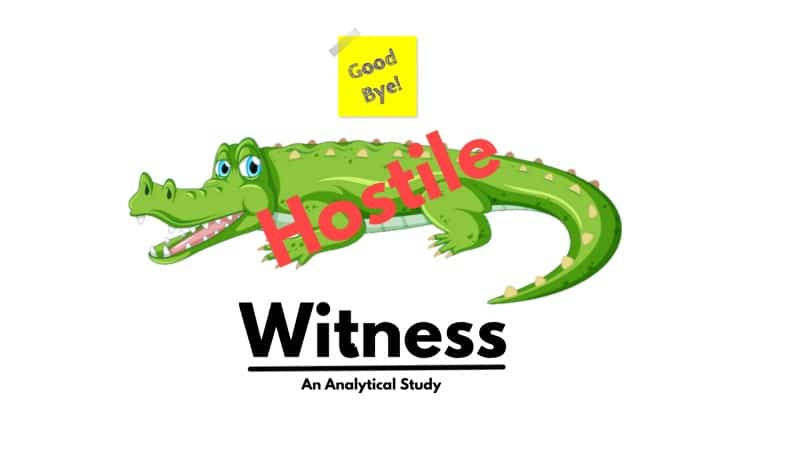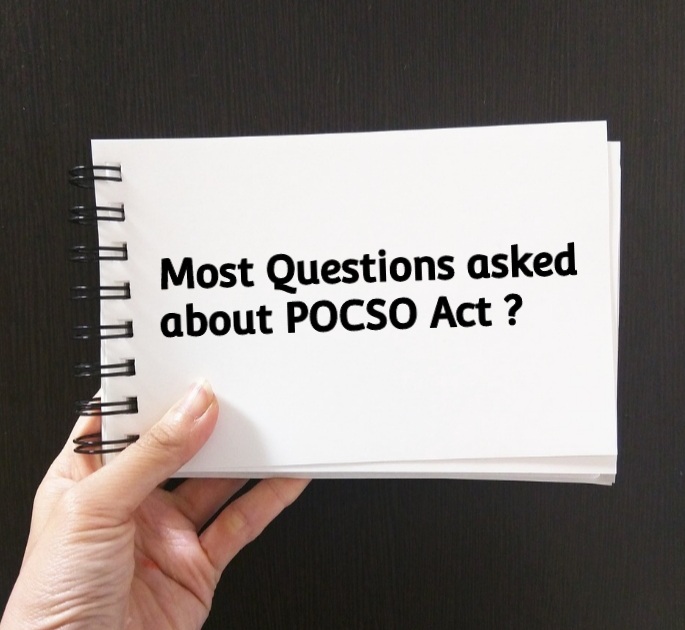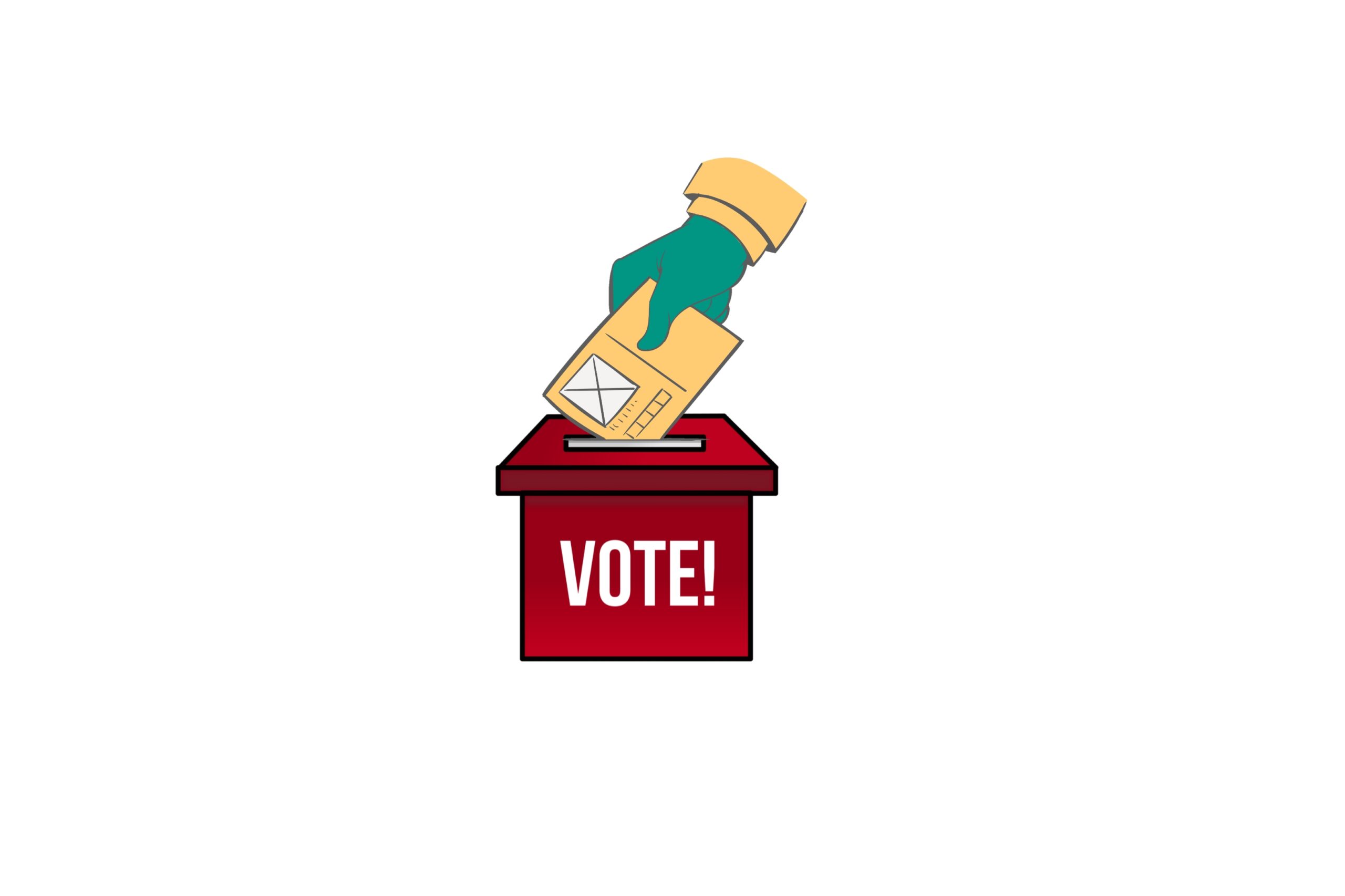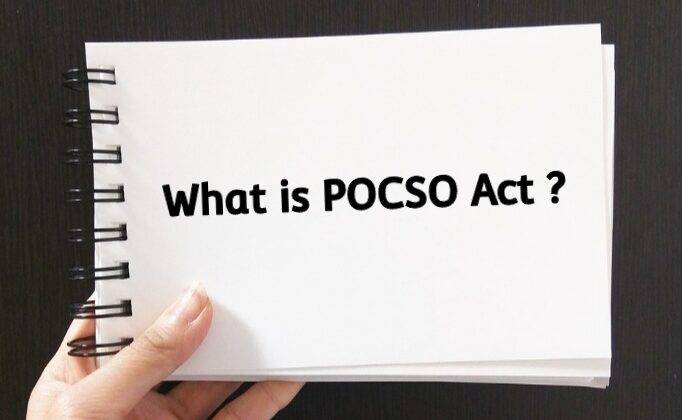Who is Hostile Witness
A hostile witness is someone who, while testifying in a court of law, provides testimony that is unfavorable to the side that called them to the stand. This means that the witness may not be cooperating with the side that called them, and may even be actively working against them. The term “hostile” is used to describe this kind of witness because their testimony is not in line with what the side that called them was hoping to hear. Despite this, the witness is still required to answer questions truthfully and to the best of their knowledge, as they are under oath and can be penalized for providing false testimony.
Importance of Hostile Witness in Law
Hostile witness play a crucial role in the Indian legal system as they provide an opportunity for cross-examination, allowing the opposing party to challenge their credibility and bring out the truth. Their testimony often presents a different perspective or contradicts the version of events put forth by the party who called them. The presence of hostile witnesses helps ensure a fair trial and aids in the search for truth and justice.
Examination of Hostile Witnesses
Examination-in-Chief of a Hostile Witness
During the examination-in-chief of a hostile witness, the party who called the witness has the opportunity to elicit their version of events and extract favorable information. Despite their hostility, the examiner should ask open-ended questions to allow the witness to narrate their story. It’s important to maintain a respectful and composed demeanor to avoid escalating tension.
In the case of State of Punjab v. Karnail Singh (2003), the Supreme Court of India highlighted the importance of an unbiased examination-in-chief. The court emphasized the need for clear and specific questions to elicit relevant information from hostile witnesses.
Cross-Examination of a Hostile Witness
Cross-examination is the stage where the opposing party challenges the credibility and veracity of the hostile witness’s testimony. The cross-examiner can use leading questions, confront the witness with prior inconsistent statements or contradictory evidence, and highlight any biases or motives that may influence their testimony. It’s crucial to be prepared, focused, and objective during cross-examination.
In the case of Zahira Habibullah Sheikh v. State of Gujarat (2004), the Supreme Court emphasized the significance of thorough cross-examination to unravel the truth. The court highlighted the right of the defense to effectively cross-examine hostile witnesses to expose any inconsistencies or ulterior motives.
Re-Examination of a Hostile Witness
After cross-examination, the party who called the hostile witness may have the opportunity for re-examination. Re-examination aims to clarify any doubts arising from the cross-examination or to address new issues that may have arisen. The questions in re-examination should be limited to the scope of the cross-examination and should not introduce new facts or evidence.
In the case of Nisar Ali v. State of Uttar Pradesh (2011), the Supreme Court reiterated that re-examination should be restricted to the issues raised during cross-examination. The court emphasized that re-examination should not be an opportunity to introduce fresh evidence or facts that were not previously addressed.
Strategies for Questioning Hostile Witnesses
When questioning hostile witnesses, several strategies can be employed to challenge their credibility and test the consistency of their testimony. These strategies include:
- Calm and composed demeanor– Maintain a professional and respectful approach throughout the examination.
- Preparation – Thoroughly analyze the witness’s prior statements and evidence to identify inconsistencies or contradictions.
- Leading questions – Use leading questions to direct the witness and highlight specific details.
- Confrontation with evidence – Present contradictory evidence or prior statements to challenge the witness’s credibility.
- Clear and concise questions – Ask precise questions that allow for straightforward answers.
Relevant Sections and Provisions
The following sections of the Indian Evidence Act are particularly relevant to hostile witnesses:
- Section 154: Section 154 allows for the cross-examination of a witness by the party calling them with their previous inconsistent statements made during an investigation or in a judicial proceeding. This section provides an opportunity to challenge the credibility of a hostile witness and establish contradictions in their testimony.
- Section 145: Section 145 permits the court to ask leading questions to a witness who is hostile or adverse. Leading questions are those that suggest the desired answer or put words into the witness’s mouth. This provision allows the examining party to exercise more control over the questioning and elicit the desired information from a hostile witness.
- Section 146: Section 146 permits the court to allow questions that are suggestive in nature while cross-examining a witness who is hostile. This provision enables the cross-examiner to put forward propositions and seek the witness’s opinion or agreement, even if it may be against their own interests.
In civil cases, the provisions regarding hostile witnesses can be utilized to discredit the testimony of a witness called by the opposing party. The examining party can employ the provisions of cross-examination under Section 154 and the use of leading questions under Sections 145 and 146 to challenge the reliability and credibility of the hostile witness’s testimony.
In Mohan Lal v. State of Punjab (2018), The court held that when a witness turns hostile, it becomes imperative to bring on record their previous statements, if any, to establish contradictions and cast doubt on their credibility. The court relied on Section 154 to allow the cross-examination of the hostile witness with their prior inconsistent.
Effect of Hostile Witness on the Case
The presence of a hostile witness can have a significant impact on a case. When a witness turns hostile, providing testimony that is adverse or contradictory to the party who called them, it can weaken the case of the party who called the witness. The contradictory testimony of a hostile witness may create doubt or cast suspicion on the credibility of the party’s version of events. As a result, it becomes crucial for the examining party to effectively cross-examine the hostile witness and expose any inconsistencies to mitigate the damage caused by their testimony.
In K. Prabhakaran v. State of Kerala (2010), where the Supreme Court of India emphasized that the testimony of a hostile witness, who resiles from his or her earlier statements, cannot be discarded in its entirety. The court held that while the court can scrutinize the credibility of the hostile witness, if any part of their testimony is found to be reliable and trustworthy, it can be considered for arriving at a just conclusion. This case highlights the importance of evaluating the testimony of a hostile witness on its merits, rather than dismissing it outright.
Notable Cases Involving Hostile Witnesses
(i) State of Rajasthan v. Kalki (1981): In this case, the prosecution called a witness who turned hostile and refused to give evidence against the accused. The trial court accepted his evidence as truthful, but the High Court held that the witness’s evidence was not reliable and was affected by the enmity between him and the prosecution. The Supreme Court held that the witness was indeed hostile and gave false evidence. The court held that when a witness turns hostile, the party who called the witness can cross-examine the witness to discredit his or her testimony.
(ii) Zahira Habibullah Sheikh v. State of Gujarat (2004): This case involved the Best Bakery massacre, and the prosecution’s key witness, Zahira Sheikh, turned hostile during the trial. The Supreme Court held that the witness’s testimony was unreliable and compromised, and there was evidence to suggest that she had been intimidated or coerced. The court ordered a retrial and held that witnesses must be protected from external pressures and that the court must ensure that they can testify without fear or favor.
Examination of Judicial Rulings on Hostile Witnesses
Judicial rulings on hostile witnesses highlight the importance of evaluating the credibility and reliability of the testimony of such witnesses. Courts also allow effective cross-examination to test the veracity of their statements.
In the case of K. Prabhakaran v. State of Kerala (2010), the Supreme Court held that a hostile witness’s testimony cannot be discarded in its entirety, and the court must scrutinize the testimony for reliability and trustworthiness. The court also emphasized that if any part of the testimony is found to be reliable and trustworthy, it can be considered for arriving at a just conclusion.
Similarly, in the case of State of Punjab v. Ramdev Singh (2004), the Supreme Court held that the court must evaluate the testimony of a hostile witness on its merits and examine the reasons for the witness turning hostile. The court also held that the court must test the evidence and assess its worthiness based on the overall facts and circumstances of the case.
Ethical Considerations in Handling Hostile Witnesses
When dealing with hostile witnesses, ethical considerations come into play to ensure a fair trial and the pursuit of truth. Legal professionals have a responsibility to maintain the integrity of the legal process and act in accordance with professional ethics. Some ethical considerations in handling hostile witnesses include:
- Professional conduct: Lawyers must adhere to the highest standards of professional conduct and ethics when dealing with witnesses, including hostile witnesses. They should refrain from misleading or coercive tactics and maintain respect for the witness’s rights and dignity.
- Duty to the court: Legal professionals have a duty to the court and the administration of justice. They should present the evidence truthfully and avoid any actions that may undermine the fairness of the trial or compromise the credibility of witnesses, including hostile witnesses.
- Balancing the duty to the client: While representing their client’s interests, legal professionals must also ensure fairness and uphold the principles of justice. They should strive to present their case effectively without resorting to unethical practices that manipulate or intimidate hostile witnesses.
Manipulation and Coaching of Witnesses
Manipulation and coaching of witnesses are serious ethical and legal concerns. Witnesses, including hostile witnesses, should provide testimony based on their own personal knowledge and experiences, free from any influence or coaching. Manipulating or coaching witnesses to provide false or tailored testimony undermines the integrity of the legal process. Legal professionals have a duty to prevent and address such practices.
One relevant case law in this context is Nand Lal Garg v. State of Rajasthan (2012), The Supreme Court of India in this case emphasized that witnesses must be free from external influences, including manipulation and coaching. The court held that coaching witnesses to provide false evidence is a grave offense and can lead to the distortion of truth. The case highlights the importance of ethical conduct and the prohibition of witness manipulation.
Protection and Safeguarding of Hostile Witnesses
Hostile witnesses may face various risks and challenges, such as intimidation, threats, or harassment, which can affect their willingness to testify truthfully. To ensure the protection and safeguarding of hostile witnesses, the legal system must provide adequate measures, including:
- Witness protection programs: Governments may establish witness protection programs to offer physical protection, relocation, and anonymity to witnesses who face significant risks due to their testimony.
- Confidentiality and anonymity: Courts may grant orders to protect the identity and personal information of hostile witnesses to prevent retaliation or harm.
- Prohibition of victimization: Laws may be enacted to criminalize any form of victimization or intimidation of witnesses, including those who turn hostile.
- Special procedures: Courts may adopt special procedures to facilitate the testimony of hostile witnesses, such as closed-door hearings, video conferencing, or allowing testimony through intermediaries.
These measures aim to encourage witnesses, including hostile witnesses, to come forward and provide truthful testimony without fear of reprisal.
Legislative Changes Regarding Hostile Witnesses
There have been some recent legislative changes in India to address the issue of hostile witnesses. In 2013, the Criminal Law (Amendment) Act was enacted, which introduced several provisions aimed at protecting witnesses, including hostile witnesses, from intimidation and harassment.
Some of the key provisions are:
- Section 195A of the Indian Penal Code (IPC): This section criminalizes the offense of threatening or inducing any person to give false evidence or withhold evidence in any legal proceeding.
- Section 327A of the Code of Criminal Procedure (CrPC): This section empowers courts to hold in-camera proceedings (i.e., closed-door hearings) for the examination of witnesses in cases of sexual offenses or offenses under the Protection of Children from Sexual Offences (POCSO) Act, 2012.
- Witness Protection Scheme: The Central government has formulated a Witness Protection Scheme 2018, to provide for the protection of witnesses, including hostile witnesses, who face threats or intimidation due to their testimony. The scheme provides for various measures, such as identity protection, relocation, and financial assistance.
Judicial Reforms and Guidelines
The Indian judiciary has also taken several steps to address the issue of hostile witnesses and improve the reliability and credibility of witness testimony. Some of the key judicial reforms and guidelines are:
- Video Conferencing: Several courts in India have started using video conferencing technology to allow witnesses, including hostile witnesses, to testify remotely, reducing the risk of intimidation or harm.
- Expert Evidence: Courts may allow the admission of expert evidence to assist in assessing the credibility of witness testimony. For instance, in cases of sexual offenses, medical experts may provide evidence on the victim’s condition or injuries.
- Judicial Scrutiny: Courts may subject the testimony of hostile witnesses to greater scrutiny to ensure its reliability and credibility. The court may assess the witness’s demeanor, consistency, and coherence, among other factors.
- Recording of Statements: Courts may record the statements of witnesses, including hostile witnesses, to create a reliable record of their testimony.
Overall, dealing with hostile witnesses requires careful handling to ensure a fair and transparent legal process. By following proper procedures and employing effective strategies, legal professionals can navigate the complexities of hostile witness testimony and work towards uncovering the truth.






Perfect image for Hostile Witness 🤣